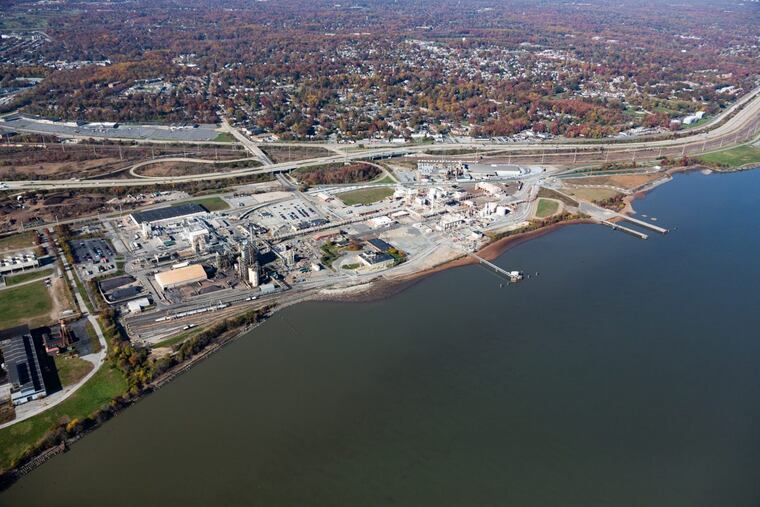Arab firm Gulftainer in line to operate Delaware port
"Gulftainer's proposal was the best, and they have been selected to negotiate final terms," said Secretary of State Jeffrey Bullock, the Wilmington Port board chairman.

An Arab port operator has been selected to operate and to expand the Port of Wilmington, potentially opening up a new container-loading facility to compete with facilities in Philadelphia and New Jersey.
Gulftainer USA, a logistics company owned by Crescent Enterprises of the United Arab Emirates, is in advanced negotiations to build a new deepwater port in Wilmington, at a cost of hundreds of millions of dollars.
"Gulftainer's proposal was the best, and they have been selected to negotiate final terms," Secretary of State Jeffrey Bullock, chairman of the Diamond State Port Corp., said in a statement Friday.
Bullock said the state-controlled port corporation expects to finalize the terms of the deal this week. The deal, which the corporation's board has scheduled for a vote on April 6, will require legislative approval.
Gulftainer operates large port facilities in the Middle East and Brazil, and signed a 35-year lease in 2014 to operate the Port Canaveral cargo terminal in Florida.
The Florida deal attracted attention from conservative media and elected officials, who contended that Gulftainer's Iraqi owners represented a national security threat. The U.S. Treasury Department's Committee on Foreign Investment declined to intervene in the lease.
Peter Richards, the managing director of Gulftainer, met with elected officials in Delaware this week, according to the Wilmington News Journal. He did not respond to telephone and email messages Friday.
In 2016, Richards told Florida Today that Gulftainer was looking to expand to a northeastern port or to Oakland, Calif.
Delaware officials have not disclosed terms of Gulftainer's proposal, but sources said that it was one of two finalists. The deal is expected to include an investment to build a deepwater container terminal on the former 114-acre Chemours Edgemoor chemical plant site. The state bought the site for $10 million in 2016.
A 2016 port master plan identified Edgemoor as the best option for expanding Wilmington's access to large cargo vessels, saying the site would require a $493 million investment and four years to develop. The site has access to rail and to I-495.
Edgemoor is adjacent to the newly dredged Delaware River, where the Army Corps of Engineers is nearing completion of an eight-year project to deepen the channel from 40 feet to 45 feet to accommodate larger vessels. It would shave off about two hours in travel time to the Philadelphia port.
Wilmington's cargo facilities currently are concentrated in shallower waters on the Christina River. It is a leading import facility for automobiles and fresh fruit and juice, including bananas from Central and South America.
The Wilmington port's search for an expansion partner is nearing completion just as the Port of Philadelphia is scheduled to take delivery Saturday on two new giant gantry cranes to handle larger ships at its Packer Avenue Marine Terminal. PhilaPort officials said they were confident they can compete with an upgraded Wilmington container facility.
"We're watching Wilmington, seeing how they make out with their solicitation, and wish them the best," said Sean Mahoney, PhilaPort's director of marketing. "We don't think the type of infrastructure that exists at Packer Avenue is easy to replicate, and if an entity did try to replicate it, it's very expensive."
The Philadelphia Port handled 6.8 million tons of cargo in 2017, including cocoa, forest products, steel, new vehicles and fresh fruit from Chile and Peru. It handled about 500,000 container units and aims to double that container volume in the next decade.
The Wilmington port had previously sought out private investors to expand its facility, but a 2013 deal to sign Kinder Morgan Energy Partners as the Wilmington port operator collapsed over uncertainties about the company's plans.
Gulftainer is said to be wooing leaders of International Longshoremen's Association Local 1694, whose members handle cargo at Wilmington's port, and whose opposition was critical to the failure of the Kinder Morgan deal. William Ashe Jr., the union's president, could not be reached for comment.
"It's important to talk to stakeholders early on and get them to buy in," said Rich Heffron president of the Delaware State Chamber of Commerce.